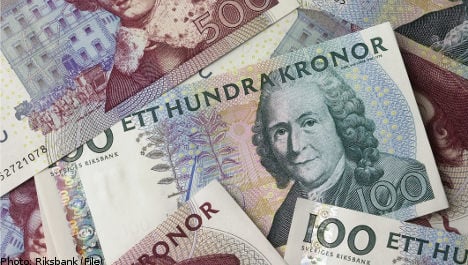The rate, known as the repo rate, now stands at 1.75 percent.
In announcing the decision, the Riksbank cited uncertainty in the eurozone, as well as the dampening effects the sluggish European economies are expected to have on growth prospects in Sweden.
While Swedish economic growth was “strong” in 2011, according to the bank, there are signs that the economy is slowing down.
“There has been a fall in orders to Swedish export companies and exports will be much weaker next year,” the bank said in a statement.
“Households and companies will postpone their consumption and investment as a result of the poorer outlook.”
Weaker demand is also expected to result in higher unemployment in 2012, according to the Riksbank.
With eurozone worries and lower demand keeping inflationary pressures at bay, the Riksbank elected to cut Sweden’s interest rate by a quarter point.
In addition, the bank said it was lowering the repo-rate path, expecting rates to remain low throughout next year.
“Later on, when inflationary pressures increase, the repo rate will need to be raised gradually,” the bank said, emphasizing, however that there was “considerably uncertainty” about future economic developments.
“The public-finance problems in the euro area in particular may become more serious and have more negative effects on the Swedish economy. In this situation, the repo-rate path may need to be lower,” the bank said.
“On the other hand, it is possible that confidence in the public finances of the euro countries will recover more quickly than expected.”



 Please whitelist us to continue reading.
Please whitelist us to continue reading.
Member comments